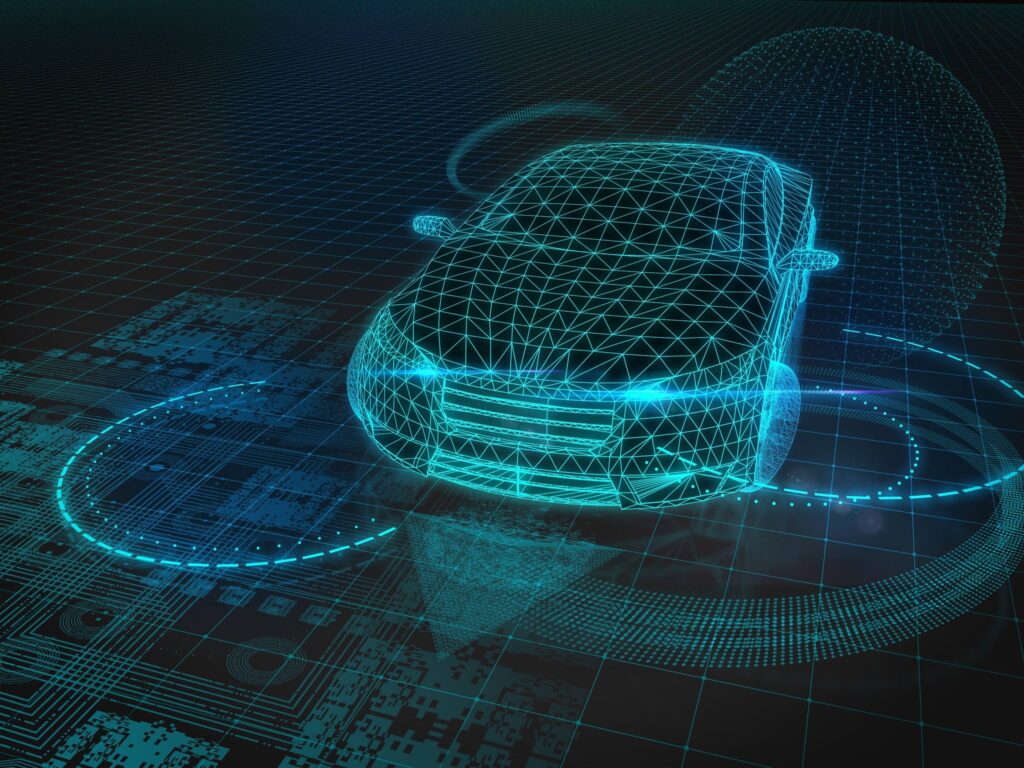The automotive industry is undergoing a remarkable transformation, driven by the integration of artificial intelligence (AI) technologies. In the realm of Automotive Tech: How AI Is Revolutionizing Driving, we witness a paradigm shift that not only enhances vehicle performance but also redefines the entire driving experience. From advanced driver-assistance systems (ADAS) to fully autonomous vehicles, AI is at the forefront of innovation, making driving safer, more efficient, and increasingly enjoyable.
In this article, we will delve into the various ways AI is reshaping the automotive landscape. You will learn about the cutting-edge technologies that enable vehicles to communicate with each other and their surroundings, significantly reducing the risk of accidents. Additionally, we will explore how machine learning algorithms are optimizing traffic management and improving fuel efficiency, ultimately contributing to a more sustainable future.
Moreover, we will discuss the implications of AI on vehicle design and manufacturing processes, highlighting how smart technologies are streamlining production and enhancing customization options for consumers. As we navigate through these exciting developments, you will gain insights into the future of driving and the role AI will play in creating smarter, safer, and more connected vehicles.
Join us on this journey as we uncover the fascinating intersection of automotive technology and artificial intelligence. Whether you are a car enthusiast, a tech-savvy individual, or simply curious about the future of transportation, this article promises to provide valuable information and inspire you to think differently about the way we drive.
AI-Powered Autonomous Vehicles
Autonomous vehicles are at the forefront of automotive technology, utilizing AI to navigate and make decisions on the road. These vehicles rely on a combination of sensors, cameras, and machine learning algorithms to interpret their surroundings and respond to various driving conditions. The development of self-driving cars has the potential to reduce traffic accidents, improve traffic flow, and provide mobility solutions for those unable to drive.
As AI continues to evolve, the capabilities of autonomous vehicles are expected to expand. Companies like Tesla, Waymo, and others are investing heavily in research and development to enhance the safety and efficiency of their self-driving systems. The integration of AI in autonomous vehicles not only aims to improve user experience but also to address broader societal issues such as urban congestion and environmental sustainability.
Advanced Driver Assistance Systems (ADAS)
Advanced Driver Assistance Systems (ADAS) are designed to enhance vehicle safety and facilitate driving tasks. These systems utilize AI to provide features such as adaptive cruise control, lane-keeping assistance, and automatic emergency braking. By analyzing data from various sensors, ADAS can assist drivers in making informed decisions, ultimately reducing the likelihood of accidents.
The implementation of ADAS has been shown to significantly decrease collision rates. As more vehicles are equipped with these technologies, the overall safety of roadways is expected to improve. Furthermore, the continuous learning capabilities of AI allow these systems to adapt to new driving scenarios, making them increasingly effective over time.
Predictive Maintenance and Vehicle Health Monitoring
AI is revolutionizing vehicle maintenance through predictive analytics, which helps in monitoring the health of automotive systems. By analyzing data from various sensors, AI can predict potential failures before they occur, allowing for timely maintenance and reducing the risk of breakdowns. This proactive approach not only enhances vehicle reliability but also saves costs associated with emergency repairs.
With the integration of AI in vehicle health monitoring, manufacturers can offer more personalized maintenance schedules based on driving habits and conditions. This shift towards data-driven maintenance strategies is transforming the automotive industry, leading to longer vehicle lifespans and improved customer satisfaction.
Enhanced In-Car Experience with AI
AI is also transforming the in-car experience, providing drivers and passengers with personalized services. Voice recognition systems, powered by AI, allow users to control navigation, music, and communication features hands-free. This not only enhances convenience but also promotes safer driving by minimizing distractions.
Moreover, AI can learn user preferences over time, offering tailored recommendations for routes, entertainment, and climate control. As the demand for connected vehicles grows, the integration of AI in enhancing the in-car experience is becoming a key focus for automotive manufacturers, aiming to create a more enjoyable and efficient driving environment.
AI in Traffic Management and Smart Cities
AI is playing a crucial role in the development of smart cities, particularly in traffic management. By analyzing real-time data from various sources, including traffic cameras and sensors, AI can optimize traffic flow, reduce congestion, and improve overall urban mobility. This technology enables city planners to make informed decisions regarding infrastructure development and public transportation systems.
Furthermore, AI-driven traffic management systems can communicate with autonomous vehicles, providing them with real-time updates on traffic conditions and potential hazards. This integration not only enhances the efficiency of transportation networks but also contributes to reducing emissions and promoting sustainable urban development.
The Future of AI in Automotive Technology
The future of AI in automotive technology is promising, with ongoing advancements expected to reshape the industry. As AI algorithms become more sophisticated, we can anticipate further improvements in autonomous driving capabilities, safety features, and user experiences. The convergence of AI with other technologies, such as 5G and the Internet of Things (IoT), will likely lead to even more innovative solutions in the automotive sector.
Moreover, as regulatory frameworks evolve to accommodate these advancements, the widespread adoption of AI-driven technologies in vehicles will become more feasible. The automotive industry is on the brink of a transformation that will not only enhance driving experiences but also address critical challenges such as safety, efficiency, and environmental impact.
| Aspect | Description |
|---|---|
| Autonomous Vehicles | AI enables self-driving cars to navigate and make decisions in real-time, improving safety and efficiency. |
| Driver Assistance Systems | Features like adaptive cruise control, lane-keeping assist, and parking assistance enhance driver safety and comfort. |
| Predictive Maintenance | AI analyzes vehicle data to predict potential failures, allowing for proactive maintenance and reducing downtime. |
| Traffic Management | AI algorithms optimize traffic flow and reduce congestion by analyzing real-time data from various sources. |
| Personalized User Experience | AI systems learn driver preferences and habits, providing tailored recommendations for navigation, entertainment, and vehicle settings. |
| Enhanced Safety Features | AI-powered systems can detect obstacles, pedestrians, and other vehicles, significantly reducing the risk of accidents. |
| Data Analytics | Automakers use AI to analyze vast amounts of data from vehicles to improve design, performance, and customer satisfaction. |



